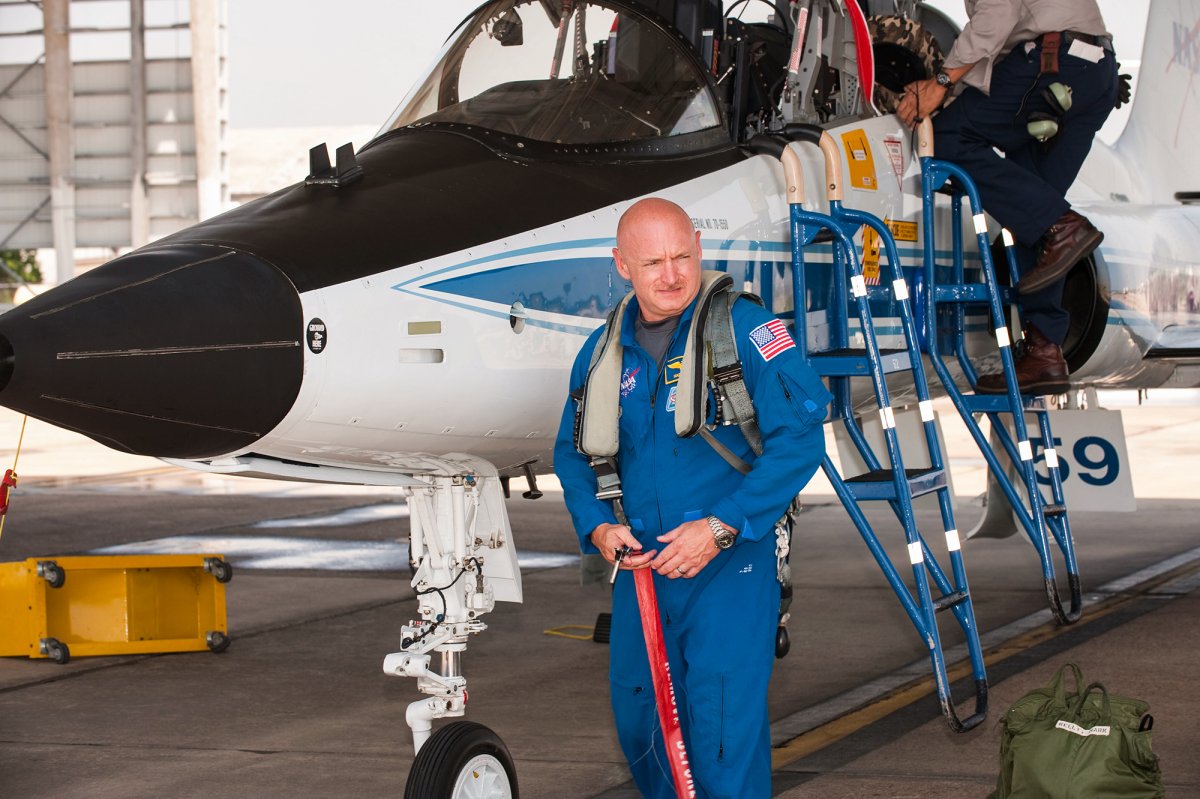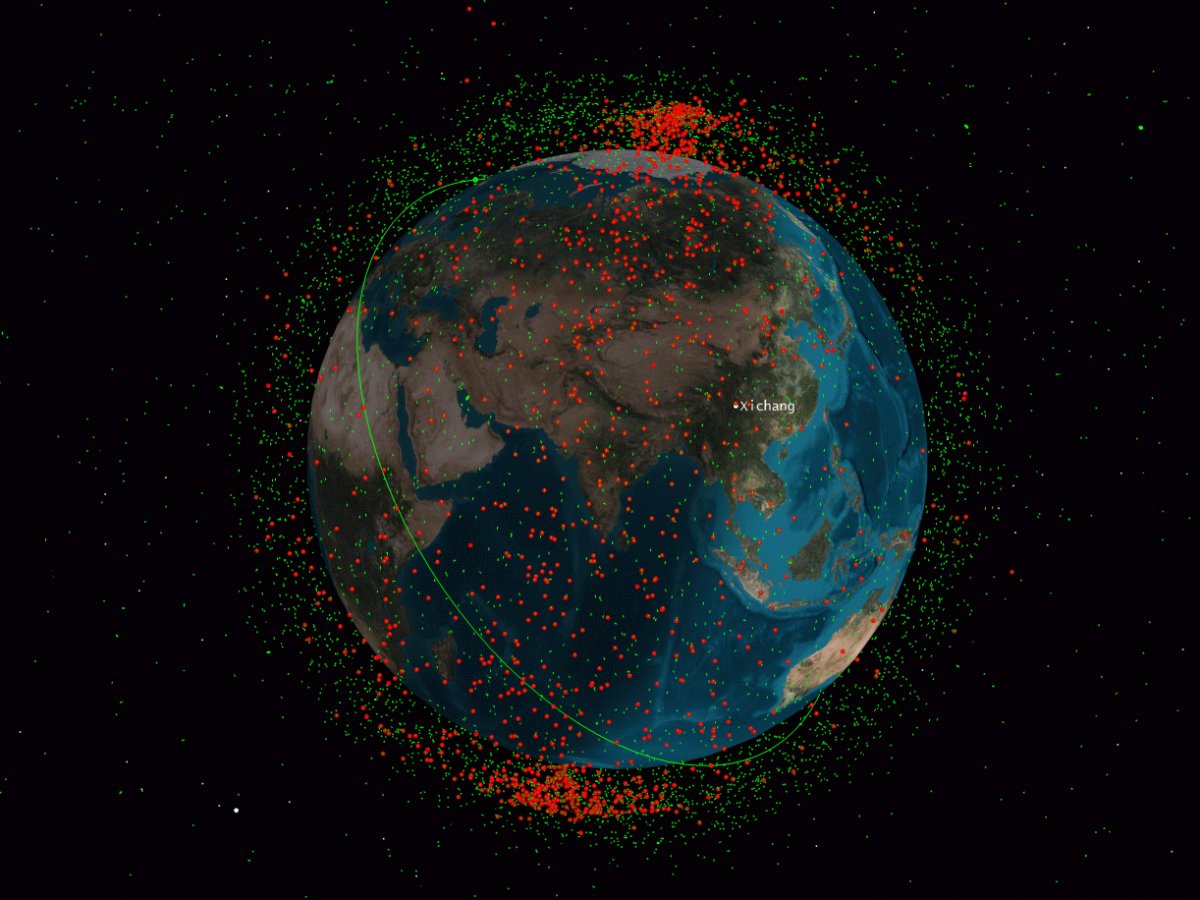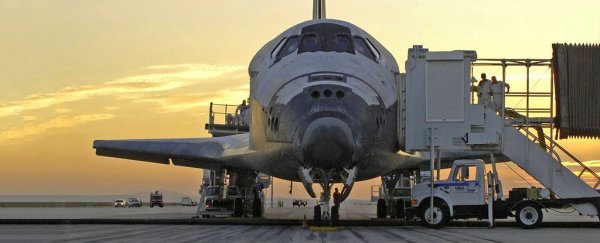President Donald Trump told space industry notables that he was directing the Department of Defence to create a Space Force, a sixth branch of the military that sounds straight of a sci-fi movie.
"We are going to have the Air Force, and we are going to have the Space Force – separate but equal," Trump said in an address at a meeting of the National Space Council on Monday.
"It is going to be something. So important."
Trump has spoken publicly about creating a Space Force four times since becoming president. The idea is also part of the 2018 National Defence Authorization Act, which became law in December.
The law defines the force as "a separate military department responsible for the national security space activities," and it asks the Defence Department to submit a final plan for its structure and functions by December 31.
But the retired NASA astronaut Mark Kelly – a former Navy pilot, combat veteran, four-time space-flyer, and the identical twin brother of the former astronaut Scott Kelly – doesn't support it, and some members of Congress are also voicing their distaste for the idea.
"This is a dumb idea. The Air Force does this already. That is their job," Mark Kelly tweeted on Monday with a link to a story on Military.com.
"What's next, we move submarines to the 7th branch and call it the 'under-the-sea force?'"
 Mark Kelly prepares for a flight. (David Dehoyos/NASA)
Mark Kelly prepares for a flight. (David Dehoyos/NASA)
The US already has a Space Force
Kelly was referring to the Air Force Space Command, though the group has had different names over the years.
Space Command is headquartered in Colorado, and its responsibilities include supporting military use of satellites, rocket launches, and cyberwarfare operations.
The group also helps track the countless pieces of space junk and debris around Earth that pose a persistent threat to anything in orbit.
Space Command is managed by US Strategic Command, one of 10 groups that direct major pieces of the Defence Department.
Its responsibilities include oversight of the country's nuclear-weapons capabilities, which involves space because long-range, nuclear-tipped missiles fly through space.
In July 2016, Space Command announced the creation of a Space Mission Force, which military leadership said was akin to an expeditionary force.
 Red dots are known pieces of China's destroyed satellite. Green dots are low-Earth orbit satellites. (Celestrak/Analytical Graphics, Inc.)
Red dots are known pieces of China's destroyed satellite. Green dots are low-Earth orbit satellites. (Celestrak/Analytical Graphics, Inc.)
This force was created in part to quickly respond to any outer-space attacks from adversaries.
The main countries of concern are Russia, which continues to publicize new weaponry, and China, which destroyed one of its own satellites in a 2007 test with a "kill vehicle" – essentially a giant bullet launched by a missile.
"Despite world interest in avoiding militarization of space, potential adversaries have identified the use of space as an advantage for US military forces, and are actively fielding systems to deny our use of space in a conflict," Gen. John E. Hyten, the commander of US Strategic Command, wrote in a white paper about the decision in 2016, when he led Space Command.
The Trump administration apparently wants to split off these space-related capabilities from the Air Force and form a new division entirely.
For and against a Space Force
Some members of Congress, especially those in the House of Representatives, appear warm to the idea.
"As we get all these briefings about what adversaries are doing, our dependence on space, it's clear that we have to do better," Mac Thornberry, the Texas Republican who chairs the House Armed Services Committee, told reporters last week, according to Space News.
"Organizational changes don't fix all the problems. But on the other hand, they can sometimes help make sure space gets the kind of priority it should have, like cyber, as a domain of warfare."
But others in Congress – and apparently some high-ranking military officials – have questioned and pushed back on the thought of a breakout Space Force.
"The president told a US general to create a new Space Force as 6th branch of military today, which generals tell me they don't want," Democratic Sen. Bill Nelson of Florida tweeted on Monday.
"Thankfully the president can't do it without Congress because now is NOT the time to rip the Air Force apart. Too many important missions at stake."
Stationing or testing any weapons of mass destruction in space, including nuclear weapons, is banned by the United Nations 'Outer Space Treaty of 1967.
Smaller-scale weapons are not barred, however, and experts fear that militarizing space could stoke a costly new arms race.
A war in space might also lead to something called a Kessler event.
In this scenario, uncontrolled space debris could collide and create even more uncontrolled space debris, ultimately shutting off human access to space for decades, if not centuries.
This article was originally published by Business Insider.
More from Business Insider:
